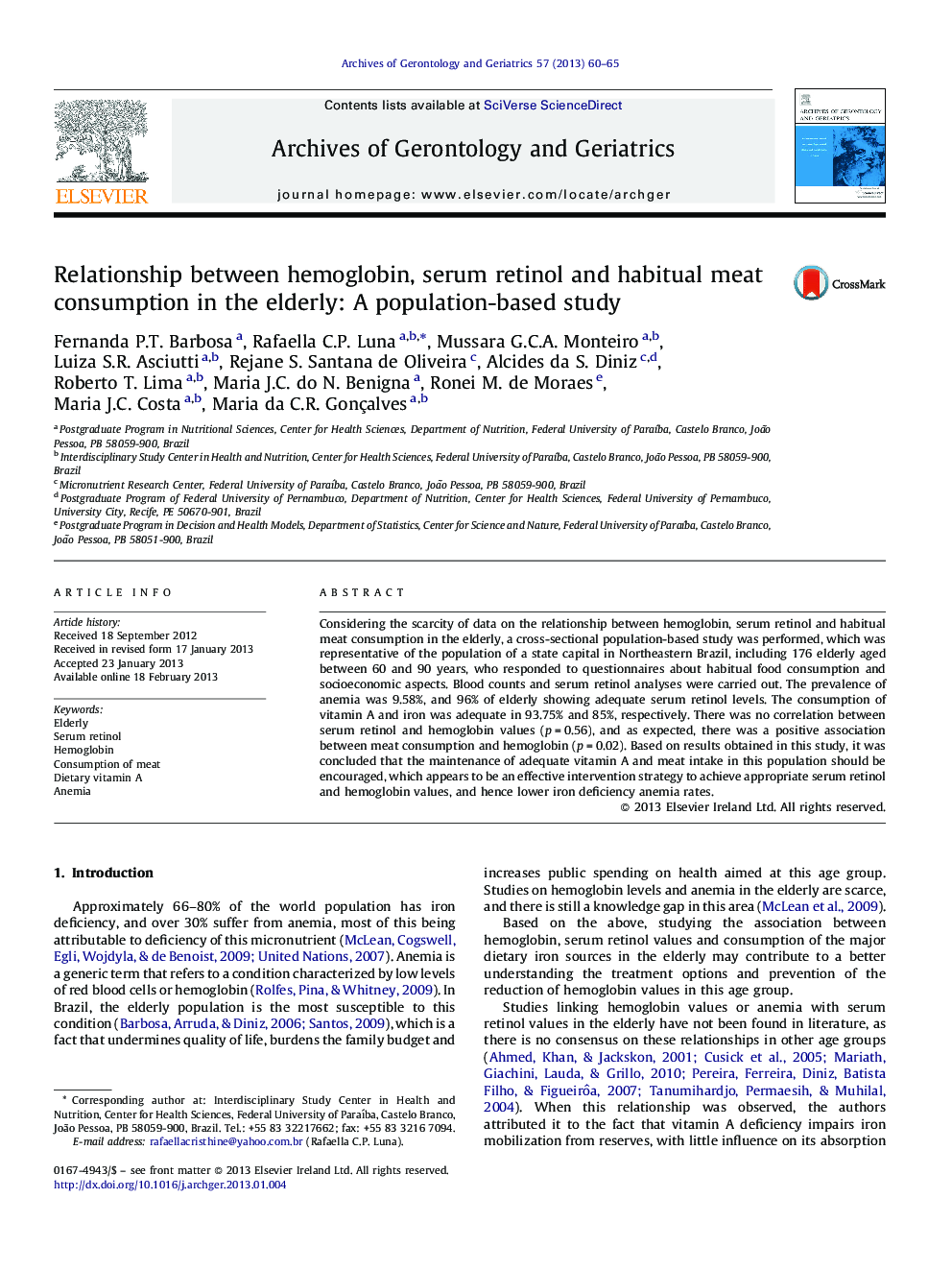| Article ID | Journal | Published Year | Pages | File Type |
|---|---|---|---|---|
| 1903104 | Archives of Gerontology and Geriatrics | 2013 | 6 Pages |
Considering the scarcity of data on the relationship between hemoglobin, serum retinol and habitual meat consumption in the elderly, a cross-sectional population-based study was performed, which was representative of the population of a state capital in Northeastern Brazil, including 176 elderly aged between 60 and 90 years, who responded to questionnaires about habitual food consumption and socioeconomic aspects. Blood counts and serum retinol analyses were carried out. The prevalence of anemia was 9.58%, and 96% of elderly showing adequate serum retinol levels. The consumption of vitamin A and iron was adequate in 93.75% and 85%, respectively. There was no correlation between serum retinol and hemoglobin values (p = 0.56), and as expected, there was a positive association between meat consumption and hemoglobin (p = 0.02). Based on results obtained in this study, it was concluded that the maintenance of adequate vitamin A and meat intake in this population should be encouraged, which appears to be an effective intervention strategy to achieve appropriate serum retinol and hemoglobin values, and hence lower iron deficiency anemia rates.
